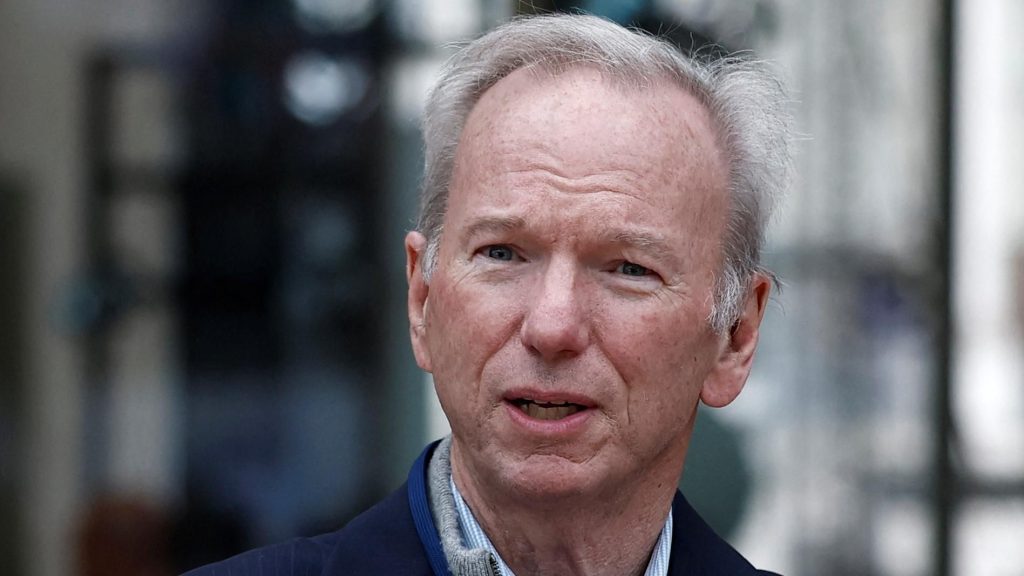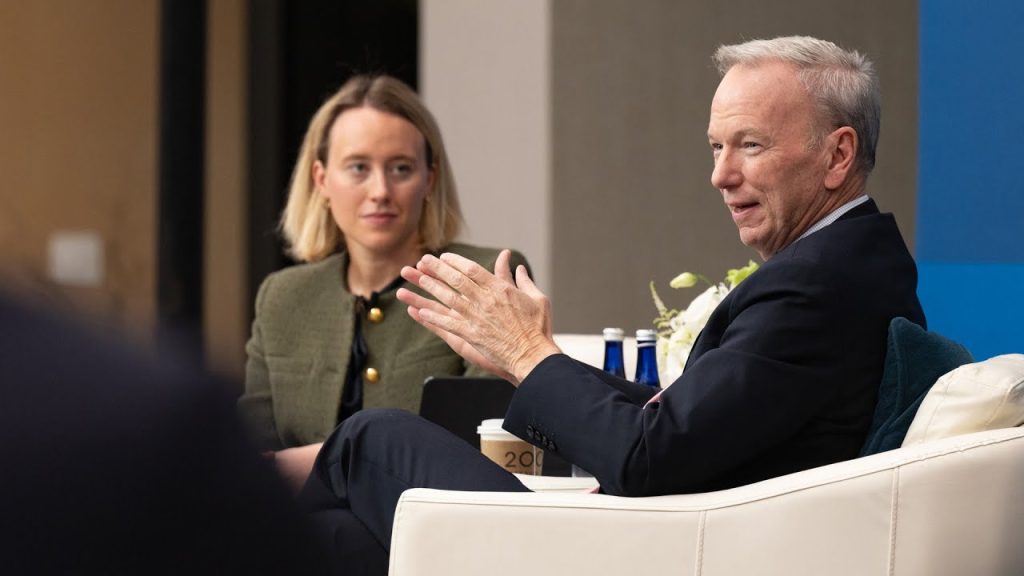Eric Schmidt, Google’s former CEO and Chairman, has issued a strong warning about the potential for terrorist organizations and rogue regimes to use artificial intelligence for malicious purposes. Speaking recently, Schmidt stressed the “extreme risk” presented by the abuse of this quickly evolving technology.
Balancing Innovation and Oversight: Schmidt’s Call for AI Governance
Schmidt highlighted the speed at which AI is developing, suggesting that terrorist groups could quickly adopt and adapt it to inflict significant harm. He specifically raised concerns about the possibility of AI being used to develop biological weapons, painting a scenario where a malevolent individual could leverage AI to orchestrate a devastating attack.
In his analogy, Schmidt referenced the “Osama Bin Laden scenario,” envisioning a dangerous person seizing control of an aspect of modern life to harm innocent civilians.
These warnings from a figure with such deep experience in the technology sector have amplified existing calls for greater oversight and regulation of AI development. The European Union has already taken steps in this direction with its AI Act, which includes bans on certain unacceptable AI applications and emphasizes the need for increased AI literacy.

This Act, which became legally binding earlier this year, aims to manage the risks associated with AI while fostering safe innovation through a risk-based regulatory framework for developers and deployers.
Schmidt highlighted the importance of government control over private technology businesses that are at the forefront of AI model development.
Furthermore, he stated that while the tech leaders he knows generally recognize the significance of their work, their value judgments may differ from those of governments. While calling for government involvement, Schmidt warned against overregulation, which might inhibit critical innovation and development in the industry.
Schmidt’s comments came shortly after the conclusion of a significant two-day AI summit held in Paris. This summit brought together a diverse group of global leaders, CEOs, academics, and civil society representatives to discuss the multifaceted future of AI. Key themes of the summit included the public interest in AI, its impact on the future of work, innovation and culture, trust in AI, and the critical issue of global governance.
Global Divide on AI Ethics: US and UK Opt Out of Agreement
Interestingly, the summit concluded with the United Kingdom and the United States declining to sign an international agreement on AI that pledged an open, inclusive, and ethical approach to the technology’s development.
This statement, which was signed by 60 other countries, outlined plans to bridge digital divides by promoting AI accessibility and ensuring its development and adoption are safe, transparent, secure, and trustworthy. The agreement also addressed the sustainability of AI, including its significant energy consumption. The UK government cited concerns regarding global governance and national security as reasons for not endorsing the communique.
In contrast, the President of the European Commission, Ursula von der Leyen, emphasized at the summit that the focus had shifted from establishing the groundwork for AI safety to taking concrete action. She articulated a vision for AI’s role in society and humanity, urging Europe to accelerate its efforts in this technological race.

The Paris summit also saw the formation of the AI Champions Initiative, a coalition of 60 tech companies, both established players and startups, aiming to reshape the AI landscape in Europe. Backed by substantial investment, this initiative seeks to position Europe as a global leader in AI research, development, and application through coordinated efforts across industry, technology, policy, and capital. Prominent companies from various sectors have joined this initiative.
Separately, Schmidt has also voiced his support for initiatives aimed at limiting smartphone use in schools, citing concerns about the impact on children. He believes that while smartphones can be safe for children with moderation, there is a need to protect them from the negative aspects of the online world. He has also expressed support for proposals to ban social media for children under the age of 16, questioning the wisdom of conducting an “uncontrolled experiment” on the next generation.
Conclusion
Eric Schmidt’s warnings underscore the urgent need for a multi-faceted approach to AI governance, balancing the immense potential of the technology with the critical need to mitigate its potential for misuse by malicious actors. His call for government oversight, coupled with his awareness of the risks of over-regulation, highlights the complex challenge of navigating the future of artificial intelligence responsibly.